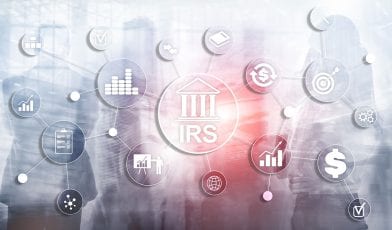Can IRS Taxes be Discharged in Bankruptcy?

Bankruptcy is an extremely involved process and there is a lot of confusion as to whether or not taxes are discharged for bankruptcy cases. Taxes can in fact be discharged for Chapters 7, 11, and 14 bankruptcy. However, there are certain rules and guidelines which must be met in full. In addition, the interest and penalties can be discharged in most cases under certain conditions. This article will give a brief explanation of the rules that apply to tax discharges as they apply to bankruptcy, but it is recommend you consult with a tax professional for advice on your particular situation.
Can income taxes be discharged when filing bankruptcy?
Chapter 7 bankruptcy taxes may be discharged if they meet all of the following criteria:
- You are not guilty of willful tax evasion or fraud: this includes (but is not limited to), filing under a fraudulent Social Security number, willfully attempting to avoid tax payment, and filing a fraudulent or incomplete tax return. To qualify for the three-year rule (see below) you should add three years to the due date for filing income taxes (April 15th).
- The income tax return has been filed at least two years before filing for bankruptcy. This allows you to discharge your taxes even if you file past the due date, as long as you have done so in at least two years before you file for bankruptcy.
- The debt for which you are filing must be at least three years old.
The tax debt for which you are filing has not been assessed 240 days before you filed for bankruptcy.
However, in the event that the tax debt does not meet the above criteria, the penalties associated may be discharged if the events that gave rise to those penalties have occurred over three years prior to the original date for which you are filing bankruptcy.
Also, those debts that do not qualify in Chapter 7 bankruptcy can be paid in a three to five year period under Chapter 13, if a payment plan can be agreed upon. Once Chapter 13 has been filed, interest rates will cease to accrue thus making the taxes to be paid free of any interest. Under Chapter 13, the majority of tax penalties are viewed as normal unsecured debt and tend to be discharged after a payment of ten to fifteen cents per dollar, or on occasion, they may be discharged with no payment. However, interest and penalties on secured tax debt are not able to be discharged up to the total value of security interest in property.
To determine if your taxes meet the above criteria, you need to obtain an account transcript from the Internal Revenue Service for each and every year that you owe back taxes. This transcript will show information such as the assessment date, filing date, and due date, and will help you determine if you meet the above criteria as outlined in the 3-2-240 rule.
Will discharging income taxes automatically dismiss a tax lien?
Even if your taxes have been discharged under bankruptcy, it does not mean that any tax lien will automatically be removed. Any property liens prior to filing for bankruptcy will still stand. However there are ways to handle those tax liens after filing for bankruptcy. If the lien in question has been attached to personal or real property before the date that they have filed for bankruptcy, the lien may be reduced or even eliminated up to the current equity value of property interest as of the original filing date. The following terms may also apply as well:
- It is possible to negotiate a settlement for less than half of the full amount in some cases, such as OIC (see below)
- If the lien is released by the IRS after the bankruptcy taxes have been discharged the debtor may request the lien to be removed.
- As most IRS tax liens expire within 10 years, it may be possible to wait out a lien. However, we do not recommend doing so without discussing the matter with a tax relief professional.
- In cases of Chapter 13 bankruptcy, you are required to pay the lien as a secure debt as part of the Chapter 13 plan. Once the lien has been paid in the bankruptcy case, the IRS will remove the lien in question. If you notice that the lien has not been removed within a few months of the discharge, you should contact the IRS or a tax relief professional for help.
You might be able to work out an “Offer in Compromise” with the IRS to settle your tax debt for less than the full amount. This can also result in a waiver of a portion of the taxes as well as fees and interest. They are not commonly accepted by the IRS, but they are often a viable solution. Since the process is time consuming and requires an understanding of the Tax Code and IRS procedures, you should consult a tax relief professional if you are considering an OIC as a payment option.
As well as assisting with tax relief, bankruptcy may also eliminate the following types of debt:
- Court judgments
- Personal loans
- Outstanding utility bills
- Medical bills
- Other types of unsecured debt
- Any garnishments, foreclosures and repossessions will be cease immediately once bankruptcy has been filed.
Get our Free Special Report: 7 Secrets the IRS Doesn’t Want You to Know!
At Landmark Tax Group, we are former IRS Agents and have years of experience in dealing with tax issues.
In the event the State or IRS taxing authorities attempt to collect taxes on those debts that have been discharged during bankruptcy or refuses to remove a lien, debtors should immediately contact a qualified tax professional.
Contact us today for immediate help with your IRS debt. We are here to assist you with any questions you might have regarding back taxes.




